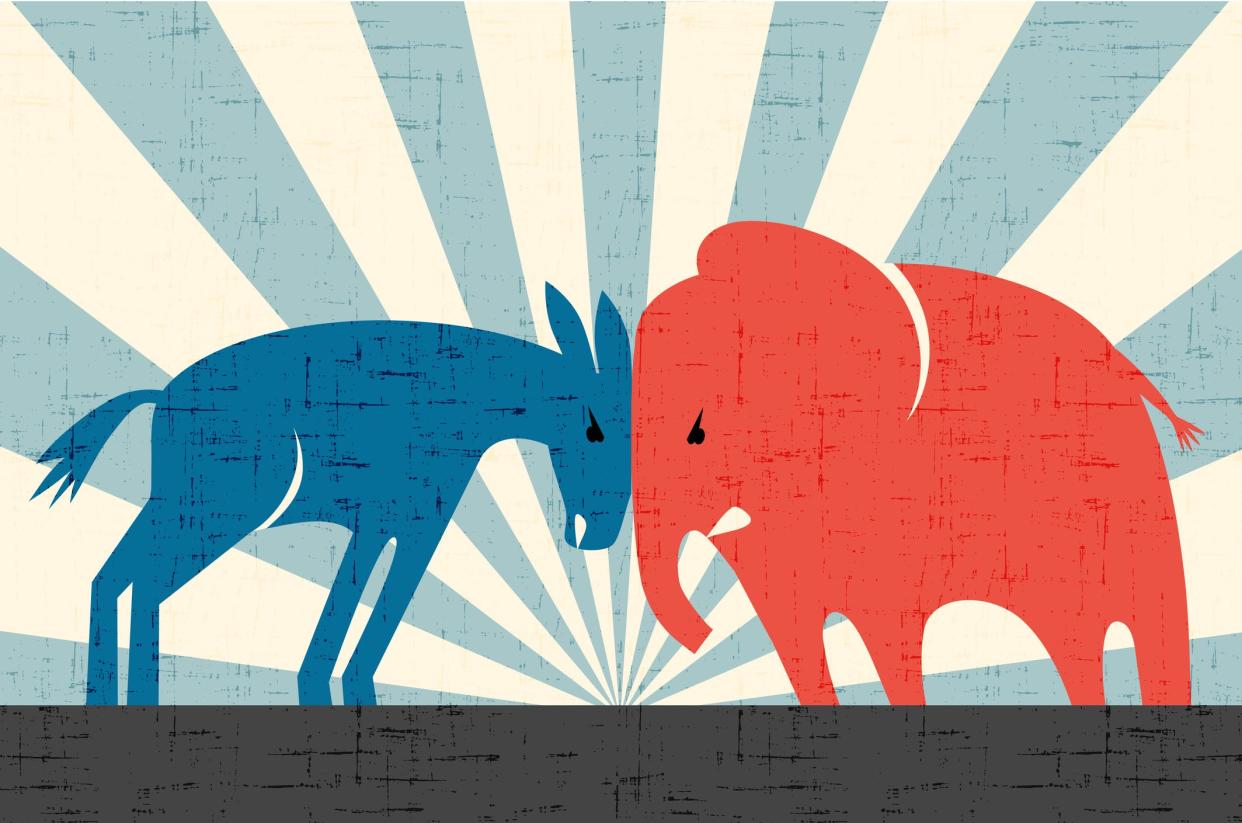How to disagree politically and still walk away as friends (yes, it's possible)

In the polarized world of modern politics, civility gets a bad rap.
Every once in a while, a centrist will ask why we can’t all just get along. Or a fusty academic will lecture the rabble about old-fashioned words like “comity” and “winsomeness.”
But for most people in day-to-day political battles, the goal is to stick it to the “bad guys” by any means necessary.
We’ve convinced ourselves our opponents are so venal, so dangerous — such a threat to democracy — that even the ugliest tactics and cruelest rhetoric are not only excused, but applauded.
American politics has turned into an internet comments section.
How to bring sanity back to politics
What’s odd is that the rest of our lives don’t work that way. Whenever we visit the store, cheer on kids at a cross-country race or attend some event filled with strangers, everyone gets along just fine.
Despite not knowing each other’s politics, income level or life stories, we share good food, cold drinks and solid jokes.
Perhaps that’s because we don’t know each other’s politics. That’s a pretty ugly commentary on civic life.
Alexandra Hudson wants to redeem civility in all areas — politics included. Her new book, “The Soul of Civility,” demonstrates how we can return a bit of sanity to public discourse.
Her first lesson is that civility isn’t a synonym for wishy-washy “politeness.” Through civility, the Rev. Martin Luther King upended racial hatreds in America and Mahatma Gandhi brought down an empire.
Instead, it is stating your viewpoint, often forcefully, while still honoring the humanity of those on the other side. We should value each other enough to tell people you think they’ve got things wrong.
Civility is not the same as politeness
Politeness, on the other hand, is simple etiquette that can be used for good or ill. We’ve all dealt with a passive-aggressive neighbor who clothes their contempt in lofty words and genteel manners.
There will always be activists who violently disrupt events, then demand civility before someone treats them in kind. Your side needs to play by the rules, but our side is so righteous we can ignore the law.
“When people hear the word ‘civility’ and recoil,” Hudson writes, “it’s often because they’ve seen it weaponized and used to silence dissent and oppress free expression. But they’ve confused civility with politeness.”
Serious times call for grown-ups: It's time to elect them
This applies online as well. Even comment sections.
“Civility helps us see the human being on the other side of the computer screen,” Hudson states, “a necessary counterbalance in an era where ubiquitous technology enables us to cut off or abuse without consequence people with whom we disagree.”
You can go far if you're not a jerk
For many of Hudson’s readers, perhaps the largest revelation is that civility gets better results than being, well, a jerk.
When a bunch of activists rage in the Capitol rotunda shaking signs and shouting slogans, no one’s mind is changed. They could be challenging election results or demanding a cease-fire in Gaza.
The issue doesn’t matter — everyone just wants them to go away.
The same goes for social media. Ranting weirdos are blocked and ignored while rational people can gain a hearing, even if they disagree.
If you look back at America’s fractious history, times have been even less civil than they are today. That goes double for world history.
That’s why Hudson gathers perspectives from ancient Egypt, the Roman Empire, the Middle Ages and today. The fact is, all great thinkers, from Beijing to the British Isles, knew civility was essential to decent governance.
All Americans won’t read “The Soul of Civility,” although I wish they would. But if each reader takes up the task of restoring a little civility to their corner of the country, the changes can be immense.
Jon Gabriel, a Mesa resident, is editor-in-chief of Ricochet.com and a contributor to The Arizona Republic and azcentral.com. On Twitter: @exjon.
This article originally appeared on Arizona Republic: Civility can restore a bit of sanity to politics. Here's how

